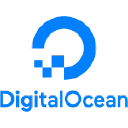On How I Develop Analytics For Marketers
Hidely-hodley, neighborinos! My name is Keith Perhac, and I’m the founder of SegMetrics -- an analytics platform built specifically for marketers. Our goal is to make it quick and easy to get the valuable information marketers need about their funnels
I’m the first to admit that I’m kind of a crazy data guy, and through the last decade of working with marketers, I’ve realized that the last thing that many of them want to do is look at spreadsheets for hours at a time. But they need that data to make better marketing decisions.
That’s the pain that SegMetrics was built from -- we needed something reliable, that was simple to set up, and easy to understand. Because no matter the size or type of business, success shouldn’t depend on wrestling some sense out of confusing or conflicting data.
Connecting directly to the data allows us to track visitors and customers through the entire marketing funnel, and gives marketers advanced lead and revenue attribution for all their funnels. No more half-baked JavaScript implementations.























